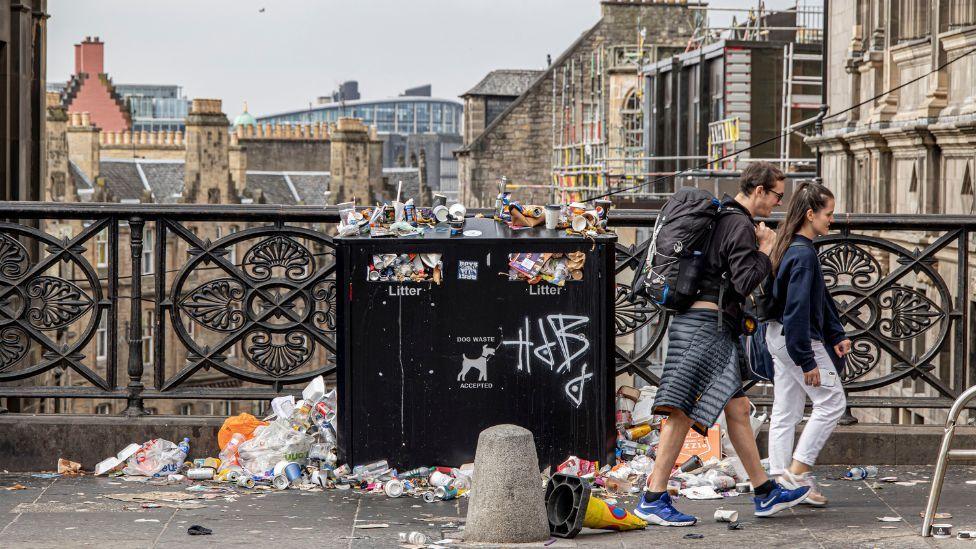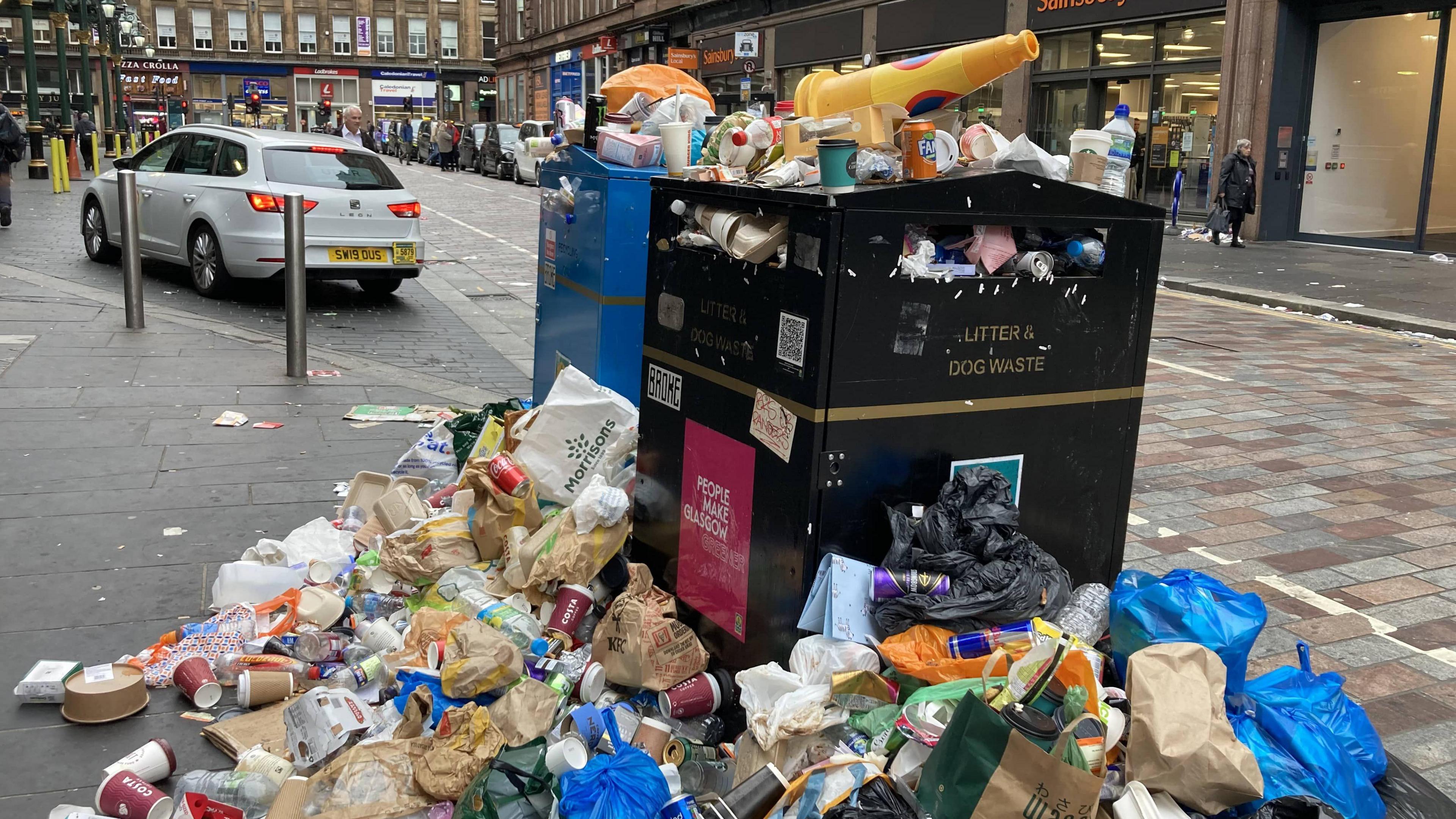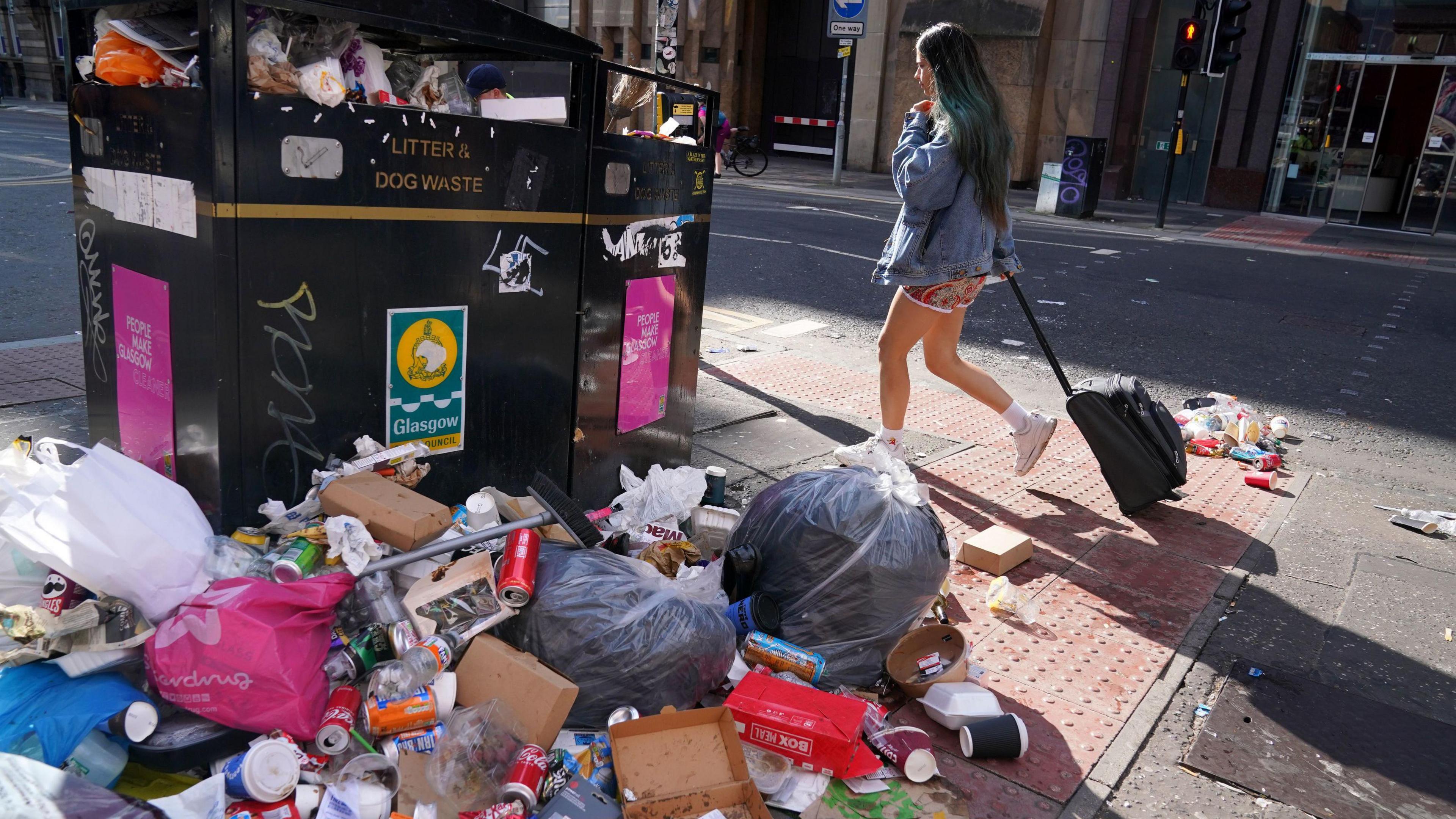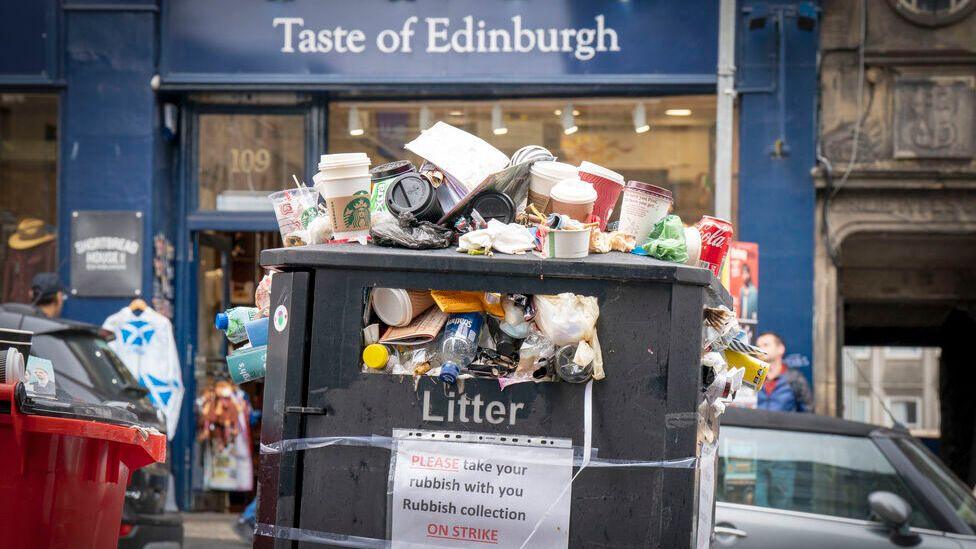Unions reject deal to avert waste worker strikes

Rubbish piled up in Edinburgh when waste workers went on strike in 2022
- Published
Two more unions have rejected a pay offer made in a bid to halt strikes among council waste and recycling workers.
Unite and GMB staff voted against accepting a deal described by local government body Cosla as "strong, fair and credible".
Unison, the biggest union representing workers, also rejected the package and backed strikes on Friday.
The majority of Scotland's 32 councils are set to be affected by the action, which union officials have warned will lead to rubbish piling up on the streets.
Union rejects council pay offer aimed at avoiding bin strikes
- Published19 July 2024
Bin strikes to hit most councils after third union vote
- Published17 July 2024
The deal would have seen workers receive a blanket 3.2% rise for a one-year period between 1 April this year and 31 March 2025.
Cosla said it was higher than the rate of inflation and worth more than the first year of the Scottish government's pay policy elsewhere in the public sector.
But Unite said the new pay offer "grossly undervalues" Scottish council workers in contrast with the offer made to UK counterparts.
General secretary Sharon Graham said: “Cosla has taken months to put a new offer to our local government membership, and it’s one that does absolutely nothing to address more than a decade of deep cuts to pay and services.
“Unless Cosla and the Scottish government move quickly to make an acceptable offer, then mountains of rubbish will pile up across the nation’s streets.
"The politicians have a choice, and one more chance, to resolve this pay dispute before strike action.”
Union anger
Before rejecting the latest pay offer, GMB members in cleansing and refuse had already backed strike action across almost half of the country's 32 local authorities with action expected next month.
Keir Greenaway, GMB Scotland senior organiser in public services, said Cosla's claim that it had tabled an improved offer "insults the intelligence of our members".
“We continue to believe a joint approach seeking more funding from the Scottish government remains the most likely route to a resolution," he said.
“Council leaders must meet as a matter of urgency and agree to approach ministers.
“So far, unfortunately, it seems some leaders have preferred to protect relations with their party colleagues at Holyrood instead of urgently seeking a resolution to this dispute."
Unison argued negotiations had "not moved one iota" since it informed Cosla it would move towards strike action.
They described the previous offer, which would have seen staff receive a 2.2% increase from 1 April and 2% from 1 October, as "inadequate".
Unison said members in 13 councils in Scotland had voted to strike and it will be balloting 38,000 school, early years and family centre staff this week.

Strikes in 2022 spread from Edinburgh to other parts of Scotland, including Glasgow
Councillor Katie Hagmann, Cosla's resources spokeswoman, said the body was "extremely disappointed" that the unions had rejected the pay offer, which she described as "strong, fair and credible" and above the rate of inflation.
"We have been very clear in all discussions with trade unions that the offer is also at the very limit of affordability for councils given the challenging financial situation we are facing," she said.
"While we are disappointed with this outcome, we remain committed to continuing to engage as positively as we can with our trade unions, as strike action is in nobody’s interests.”

The third council pay strike in three years is starting to look likely. But is it inevitable?
Council body Cosla tabled a new pay offer on Thursday for a 3.2% rise backdated to April.
But unions reckon this is no better overall than the previous offer for two rises over the course of the year – the money, they argue, is just being distributed differently.
Although inflation is now at 2%, the unions want a rise which helps make up for the rise in the cost of living between April 2023 and 24. For much of that time, inflation was significantly higher.
Any pay offer has to be affordable to all 32 of Scotland’s councils.
The two previous pay strikes were only resolved after the Scottish government gave councils more money to help.
So can this dispute be resolved before strikes begin? Time is starting to run out. Strike dates are likely to be announced soon with the law requiring two weeks’ notice.

In 2022 waste workers walked out in Edinburgh for 12 days during the city’s festival season, leading to mounds of rubbish littering the streets.
That was followed by similar action in Glasgow and a further 18 of Scotland's 32 council areas, lasting until the end of August.
Public Health Scotland was forced to declare a health warning due to the accumulation of waste in urban areas.
An agreement was eventually reached on 2 September, but only after an intervention from then-first minister Nicola Sturgeon.
First Minister John Swinney told BBC Scotland News the pay dispute was a matter for local authorities.
He added: “The Scottish government and I would encourage all of the interested parties to work together to ensure we can avoid any industrial action and we can maintain the delivery of council services upon which many people rely.”
Related topics
- Published18 July 2024

- Published2 July 2024
